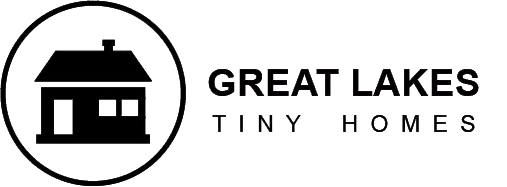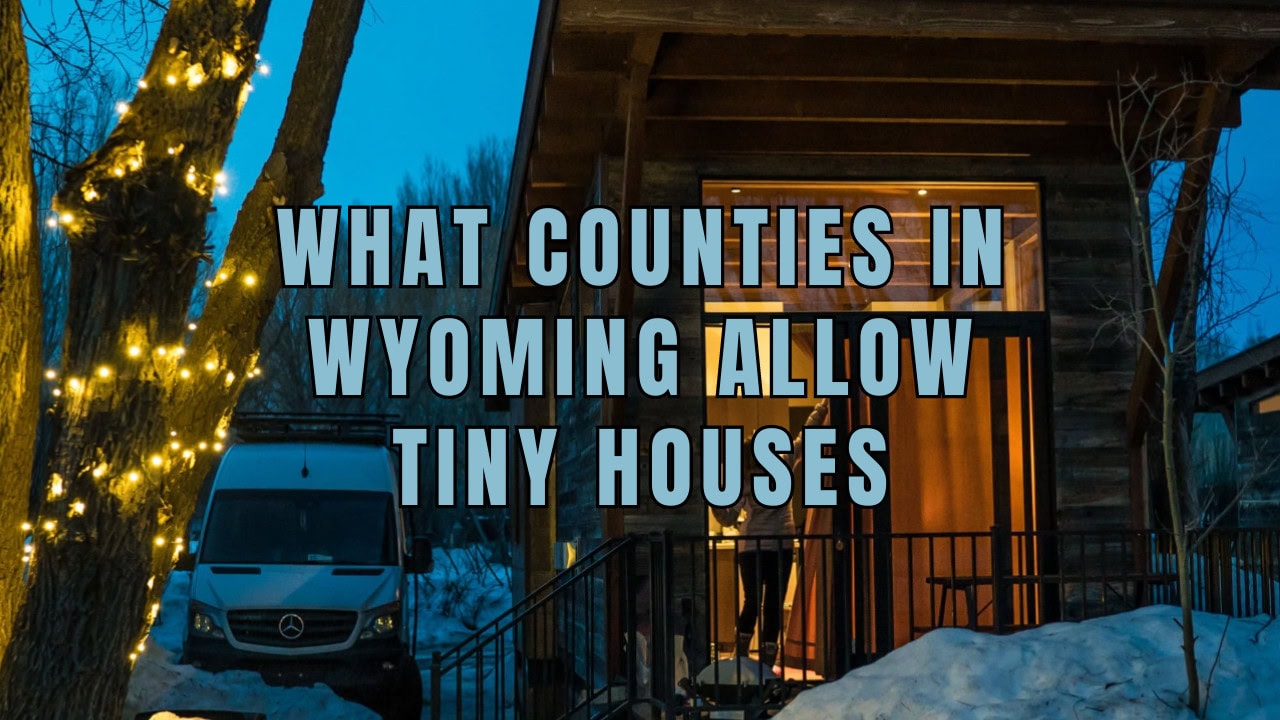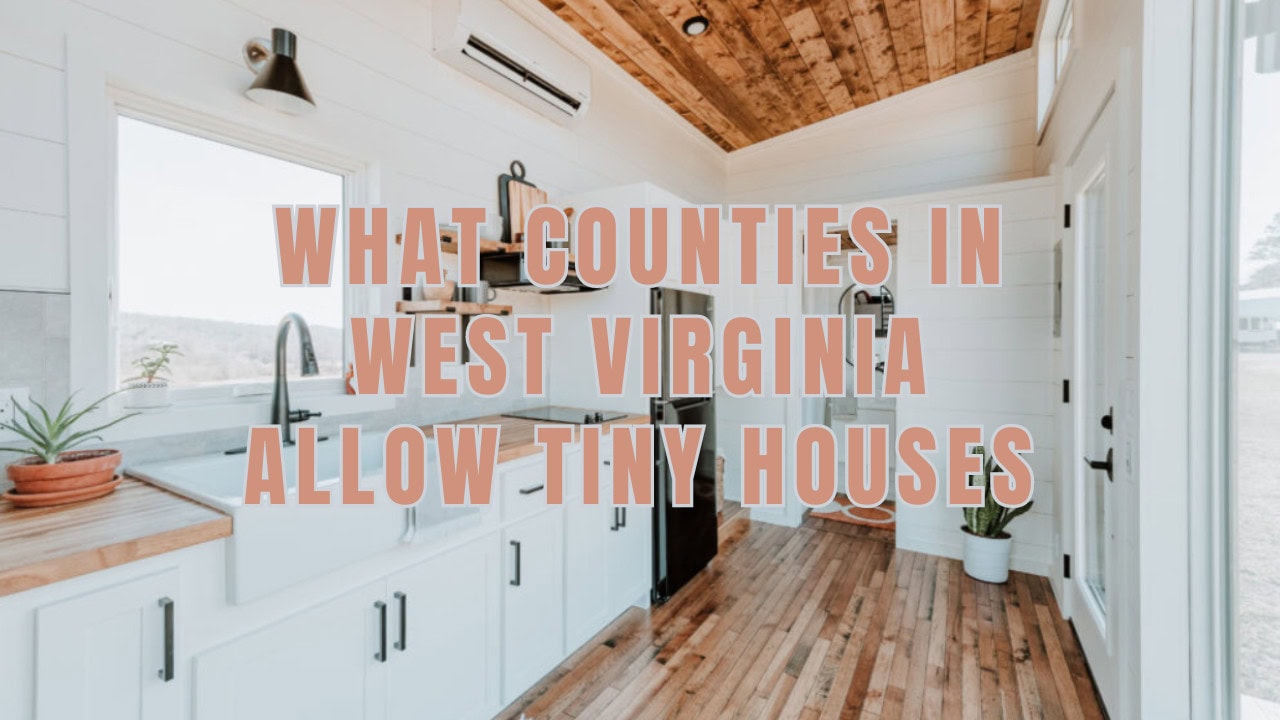Wisconsin is a state of natural resources, rich in culture, and with a broad range of landscapes. With its abundance of picturesque settings, welcoming towns, and outdoor activities, this state is also quite promising for tiny home individuals.
However, finding a suitable area can prove difficult in Wisconsin due to the state’s complex and diverse small home laws.
Keep reading if you’re curious about tiny houses in Wisconsin. We’ll go into more depth about each kind of tiny house in this post, along with some examples and advice on the best place for you and where to buy tiny houses.
Tiny House Costs in Wisconsin
You are probably curious about the cost options that will satisfy your compact living goals and budget. In Wisconsin, the usual price to build a tiny house can vary, ranging from $40,000 to $90,000.
However, to guide you toward your living mission, we provide solutions to suit every preference and price limit. Check out WI’s tiny homes for sale!
What Counties in Wisconsin Allow Tiny Houses?
Every state and every county has rules governing them. Although there are a few constraints, we can’t conclude that Wisconsin isn’t suitable for tiny homes. While some localities prohibit small dwellings, others have unclear laws governing their construction and habitation. Therefore, you need to learn more to live in Wisconsin.
Dane County
In Dane County, which encompasses the Madison metropolitan region, residential properties include auxiliary dwelling units (ADUs) measuring up to 150 square feet. Nonetheless, in most rural regions, a restriction limits the number of structures to one per 35-acre lot.
Barron County
Wisconsin counties like Barron County are among the more accommodating tiny living options. Tiny homeowners have more flexibility because the county does not have any clear ordinances that restrict tiny residences. Furthermore, the region’s first tiny house community exists in Barron County.
Tiny House Regulations And Rules In Wisconsin
The rules governing tiny residences will inevitably change according to the municipality, county, or city. However, Wisconsin laws often make it difficult for would-be small homeowners to construct tiny houses, particularly as independent structures on permanent foundations. Numerous zoning laws explicitly exclude them.
Permanent Structure Rules
Small dwellings are permissible if built per Wisconsin’s zoning and construction standards. Tiny house regulations are set by each town in the state and must be complied with.
Permanent constructions must be code-compliant, adhere to all local construction regulations, and connect to the utilities for power, sewage, and water. They also receive the appropriate permission from the local government.
- In Wisconsin, a permanent tiny home needs a sturdy foundation that complies with the building rules of the state.
- Depending on the plans and local laws, the foundation may consist of piers, a crawlspace, or a conventional concrete slab.
- A permanent home plumbing system has correct fixtures, drainage systems, and water supply lines. It must also meet health and hygiene regulations.
- A tiny permanent house’s electrical system should comply with Wisconsin electrical codes. It includes properly installing wiring, outlets, switches, and fixtures and following grounding and circuit protection safety regulations.
- Permanent residences should have the right kind of smoke alarms, materials that are fire-rated in some locations, enough space around heating sources, and emergency exits.
The RV camping regulations, which provide up to two weeks of stationary residence before relocating, shall be adhered to if one intends to live in a tiny house on wheels (THOW). Parking tiny homes on wheels on public grounds requires a permit from the local government.
Temporary Structure Rules
In Wisconsin, temporary structure rules for tiny houses vary by municipality. Some areas have minimum square footage requirements, while others require homes on a foundation. Zoning regulations and building codes also play a role in determining where and how tiny houses can be placed in the state.
- You adhere to recreational vehicle rules if your small house on wheels is meant to be movable and fits the requirements for an RV.
- These rules address safety criteria such as weight limitations, dimensions, and equipment specifications.
- Typically, recreational vehicles are more for short-term than long-term occupancy. Some regulations control how long they can keep and where they can park.
- Park-style RVs are mobile houses meant for extended visits. Even though they resemble permanent homes and have amenities, they are still subject to RV restrictions.
Transitional Structure Rules
Wisconsin has regulations and rules for tiny houses and transitional structures. These rules cover aspects such as zoning, building codes, and permits. Be aware of these regulations before building or residing in a tiny house in Wisconsin to ensure compliance with the law and avoid potential fines or penalties.
- Transitional construction must adhere to construction requirements to maintain structural integrity and security. These standards change the transitional structure’s unique categorization.
- Transitional construction frequently requires building licenses and inspections to verify that they comply with applicable tiny home rules.
- Local building agencies will set the particular criteria for permits and inspections.
- Since transitional structures are readily moved, it considers aspects like securing mechanisms, transportation options, and anchoring systems to guarantee safe movement.
In Wisconsin, Where Can I Build A Tiny House?
Your tiny house’s location is essential. Select a registered tiny house constructor to help you with the procedure, manage every piece of documentation, and confirm that your home satisfies all construction demands.
Building a tiny house is a huge task, but if you prepare, it does not have to be unwelcome. The spots that follow are frequent locations for tiny homes.
- RV parks
- National Parks and campgrounds
- Tiny house communities
- Private properties
Tiny Home Communities in Wisconsin
Tiny House communities in Wisconsin are increasing in popularity, offering a more sustainable and affordable housing option. The state’s tiny house laws allow them on foundations, but they must adhere to the uniform dwelling code. These communities often provide a sense of camaraderie and shared resources, much like a mobile home park, but with the added benefit of smaller, more efficient living spaces.
Canoe Bay Escape
The first tiny home resort village is Canoe Bay Escape Village in Rice Lake, Wisconsin. Canoe Bay, consists of 21 small units on 100 acres of undulating, mixed hardwood woods, marshes, and many private lakes.
Each of the village’s homes has features like expansive windows, a fully equipped kitchen, roomy bathrooms and bedrooms, a washer and dryer, storage, and complete climate control.
Village Cohousing Community
In the Greenbush area, Mound Street, South Mills Street, and St. James Court are the addresses of this intentional living community. Village Cohousing Community is Madison’s first full-fledged cohousing project.
This intentional living community aspires to represent variety, value relations to the land and surroundings, reach decisions by agreement, resolve conflicts ethically, and share the daily and weekly tasks of maintaining community.
Tiny House Builders Near Me
You can find your ideal home without looking for local builders due to Great Lakes Tiny Homes, which provides a wide selection of tiny home plans with across-the-country shipping.
Besides, the RV Industry Association (RVIA) qualified constructor Great Lakes Tiny Homes is dedicated to the highest adherence to construction, safety, and laws and regulations for tiny homes and the highest building standards.
Do I Need a Certified Builder?
Yes, you do! Dealing with a constructor company that obtained RVIA certification, such as Great Lakes Tiny Homes, assures that your new tiny house was manufactured in compliance with laws and regulations.
Certification also provides peace of mind because it validates that the materials in your home are excellent, durable, and safe.
Partnering with an enrolled builder additionally implies access to insurance coverage and financing possibilities. Your tiny home promises to be a safe and livable space provided it fulfills RVIA requirements.
FAQs
Can You Make a Tiny House in Wisconsin Your Main Residence?
In Wisconsin, you can live permanently in a compact dwelling.
Nevertheless, local statutes and regulations vary from county to county. The idea is to figure out whether your small home complies with every law that applies, including inspection requirements, by approaching the appropriate zoning and agencies.
Enjoy the advantages of a more straightforward, sustainable living in Wisconsin, do your research, and collaborate with approved builders.
Can I Construct and Place in My Backyard a Tiny Residence in Wisconsin?
If your tiny home is an accessory dwelling unit (ADU), you can build it on your land in some Wisconsin counties and towns. You need to follow relevant homeowner’s association (HOA) guidelines, construction requirements, and local zoning restrictions.
In Wisconsin, Do I Need to Cover Property Taxes on My Tiny House?
Your tiny house could pay property taxes like a regular home if it sits on a solid foundation and satisfies the requirements to be considered a permanent residence. In this scenario, property taxes are paid and the tiny house’s value is determined with the rest of the property. If your small house qualifies as personal property, like a recreational vehicle (RV), it could be subject to different tax rules.
Conclusion
Wisconsin allows tiny dwellings; however, local laws vary from one town to the next. To make sure their tiny home is sustainable and compliant, potential tiny homeowners face a challenging maze of local construction requirements, zoning restrictions, and community standards.





